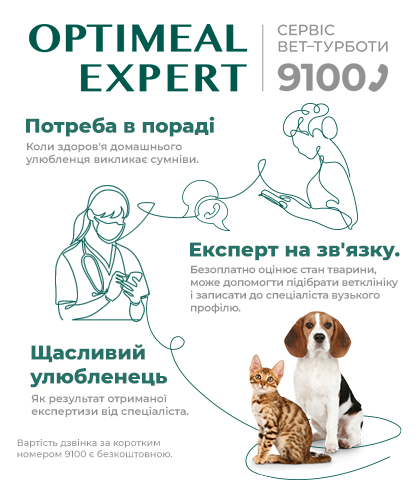The immune system. The primary function of the immune system is to protect the body against infection by viruses, bacteria, fungi, and parasites. It also plays an important role in removal of dead cells of the body and in recovery from lesions caused by environmental factors, such as radiation or poisoning. Sometimes the immune system's response may be excessive, it may be imbalanced. The imbalance may cause such immune disorders as arthritis, certain types of asthma, allergies, and other diseases. The immune response may also be slowed down, which reduces the organism's resistance to infections. Therefore, reliable functioning of the immune system is extremely important for good health. For years, researchers have been trying to discover the substances that cause a controlled process and make the innate immune system respond to infections quickly and effectively, without causing inflammation or unwanted side effects. Studies have shown that beta-1,3/1,6-glucans are able to stimulate and activate the immune system. In the course of evolution, the immune system has "learned" to recognize their molecular structure as a reliable stimulant of processes. Beta-1,3/1,6-glucans in the purified form serve as a signal for the immune system that prepares it for a quick and adequate response to infection and causes powerful resistance to pathogens.
What is beta-1,3/1,6-glucans? A glucan is a polysaccharide consisting only of glucose molecules. The two main types of glucans are alpha- and beta-glucans (α- and β-glucans), which characterize the principle of glucose molecule combination. The number indicates the location of one molecule's bondage with the next one. The alpha/beta and number combination reflects the exact structure of the glucan chain. The best known glucans are starch and cellulose. Glucose or starch molecules are bound by alpha-1,4-bonds, and cellulose - by beta-1,4-bonds. But these glucan molecules do not enhance the immune system. Beta-1,3/1,6-glucans are natural compounds found in cell walls of fungi and yeast. The beta-1,3/1,6-glucan molecule consists of a long core glucose molecule chain linked by beta-1,3-bonds and side glucose molecule chains, also bound by beta-1,3-bonds. The side chains are linked to the core one by beta-1,6-bonds. Beta-1,3/1,6-glucans have powerful immune enhancement properties.
The mechanism of action. White blood cells (at the forefront of immune protection) have receptors able to bind pathogens invading the organism. On the surface of leukocytes, there are receptors that also bind beta-1,3/1,6-glucans.
For the immune system to recognize them, the side glucose molecule beta-1,3-glucan chains are linked to the core chain by beta 1,6-bonds. The specific structure of beta-1,3/1,6-glucans makes it possible for them to bind with certain receptors on the surface of leukocytes (macrophages, granulocytes, and normal killers). This binding resembles the key and lock principle. The length of side chains determines effectiveness of immune system stimulation. To precisely match white blood cell receptors, the "branches" should consist of at least two glucose molecules.
Macrophages are part of the innate immune system. The combination of beta-1,3/1,6-glucan with the receptor causes activation of the macrophage, which enhances the innate immune system. At the same time, binding with beta-1,3/1,6-glucan stimulates the macrophage's emission of alarm signals (such as cytokines), which stimulate specific immune system cells (B- and T-lymphocytes). This contributes to enhancement of the immune status and increased production of immunoglobulins.
Effects of beta-1,3/1,6-glucan consumption:
• Higher antimicrobial activity and cell protection
• Increased resistance to diseases
• Neutralization of inflammatory processes
Effectiveness of beta-1,3/1,6-glucan consumption. During pets' life, there are periods when consumption of beta-1,3/1,6-glucans is especially important. Beta-1,3/1,6-glucans help increase natural protective factors of young animals and prevent compromising of older animals' immune status. They enhance the immune system in case of stress or diseases.
Studies have shown that beta-1,3/1,6-glucans can improve the immune response after vaccination. In a study involving puppies, adding beta-1,3/1,6-glucans to their feed increased their antibody count after vaccination. Numerous studies have shown that beta-1,3/1,6-glucans can increase resistance to individual infections.
Use of beta 1,3/1,6-glucans in feed for cats and dogs. All of the super-premium OptiMeal rations contain MacroGard® - a source of purified beta-1,3/1,6-glucans, isolated from baker's yeast Saccharomyces cerevisiae. MacroGard® is safe for use in feed to modulate the immune system.
Thus, numerous trials conducted involving different species of animals have shown that use of such a source of purified beta-1,3/1,6-glucans has a positive effect on cats' and dogs' health.
Interaction of the immune cell and the beta-glucan molecule

The figure presents the key and lock principle: binding of beta-1,3/1,6-glucan with a macrophage receptor. It is the key that activates the immune system and promotes higher antimicrobial activity and cell protection, increased resistance to diseases, and attenuation of inflammatory processes. Most cells of the immune system are located in the body's cover layers, especially in the intestinal endothelium, which is the largest immunological organ. When ingested, beta-glucans are able to bind to dendritic and other immune cells in the lymphoid tissue of the digestive tract
(in Peyer's glands). Activated in the intestinal endothelium, immune system cells release alarm signals, i.e. cytokines. Thus, orally administered beta-1,3/1,6-glucans activate not only the non-specific immune system, but also the immune system of the entire organism (specific). This causes intense phagocytosis of macrophages and activates production of specific
immunoglobulins.
Beta-1,3/1,6-glucans not only have a positive effect on the health of the digestive tract, but also reduce immune disorders throughout the body.
Oral administration of beta-1,3/1,6-glucans reduces plasma concentration of proinflammatory cytokines IL-6 and TNF-α and increases concentration of anti-inflammatory cytokine IL-10. Thus, beta-1,3/1,6-glucans have the anti-inflammatory effect.
Adding beta-1,3/1,6-glucans to food produces a dual beneficial effect on the organism's health: it strengthens the immune system and reduces inflammation.

